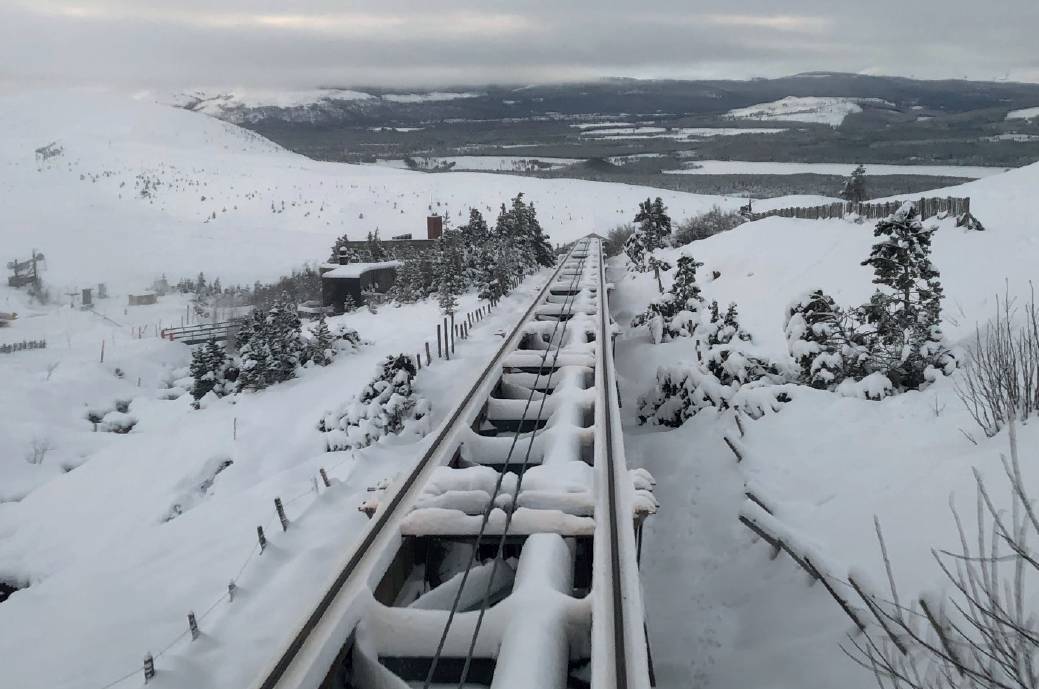The biggest issues of the month explored | Rail
Inside Track
RAIL
Operator of defective Cairngorm Funicular Railway receives £11M in out-of-court settlement
Contractor, consultant and previous operator were caught up in legal action
By Thomas Johnson
Highlands & Islands Enterprise (HIE) is to receive £11M in an out-of-court settlement relating to construction defects which led to the closure of the Cairngorm Funicular Railway in 2018.
It had taken legal action against contractor Galliford Try and consultant AF Cruden Associates in relation to faults found in the structure and foundations of the funicular railway when it was originally designed and constructed in the 1990s and early 2000s.
 The railway serves the Cairngorm ski resort
The railway serves the Cairngorm ski resort
HIE had also pursued claims against Natural Assets Investments Ltd which was the parent company of the railways former operator CairnGorm Mountain Ltd. These related to guarantees it had made to HIE.
Details of the settlement remain confidential. Galliford Try is the owner of Morrison Construction, which carried out the original construction work. AF Cruden went into liquidation in 2020.
HIE chief executive Stuart Black said: “We are pleased to have reached this settlement, which enables us to recover a significant amount of public funding and brings closure to these long-standing matters.”
The railway opened in 2001 after it was built for £19.5M. Construction was publicly funded through HIE, with support from the European Regional Development Fund. The 2km route is the highest railway in the UK, serving Cairngorm Mountain ski resort.
CairnGorm Mountain Ltd closed the railway in September 2018 after an inspection questioned the stability of the railway’s supporting structure. The funicular remained out of service for more than four years because of safety concerns about the concrete pillars supporting the track.
In December 2018, HIE took over operations through a new subsidiary, Cairngorm Mountain (Scotland), which continues to manage the estate and railway.
Following this, HIE instructed consultant Cowi to carry out structural and foundation investigations. These revealed the structure’s condition was “disappointing” for its age and identified various defects. A second report commissioned by HIE confirmed that work was needed to strengthen the railway’s piers, beams and foundations.
In late 2020 IHE awarded Balfour Beatty a £20.5M contract to repair the railway and carry out other work to turn the Cairngorm mountain peak into a year-round tourist destination. The decision to reinstate the funicular railway was taken following a detailed options appraisal that also considered replacing it or removing it entirely.
In 2021, HIE sought £14.5M in damages from Morrison Construction – which is now part of Galliford Try.
In November 2022 NCE reported that the repair bill for the Cairngorm funicular had risen to £25M. Repairs were originally earmarked to cost £14.8M and had increased to £16M earlier that year. HIE announced a further £9M cost hike due to the impact of Covid, Brexit and bad weather last spring, all of which had hampered repairs. This means repair costs are likely to be close to the £26.7M it cost to originally build the funicular.
The railway returned to service in January this year after remediation work was completed.
On the funicular’s reopening, Cowi UK project director Scott Allan confirmed that Cowi had developed strengthening solutions to remediate the structure and address the concerns identified in the viaduct structure.
Allan said: “These solutions included external strengthening of the main beams and bracing system, replacement and alteration of the structure’s mechanical bearings and strengthening of the existing piers. We continued to support this technically challenging project through to completion of strengthening works and advised on structural matters for the operator’s safety case.”
Galliford Try said: “Galliford Try notes the statement from HIE regarding the settlement of outstanding legal issues around the Cairngorm Funicular Railway. As a business, we welcome the resolution of this dispute, albeit our role within in it and our exposure to the subsequent settlement is relatively minor.”